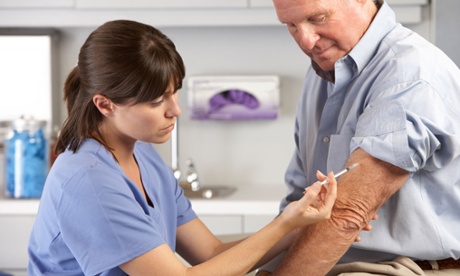
When I was an emergency department intern, the consultant asked me to start assessing a patient in the critical bay. There, I found an elderly man who had clearly suffered a stroke. He couldn’t speak. Sensing another presence in the room, I turned around to find a stately man patiently watching my futile attempts to elicit a reflex on the patient.
"This is my dad," the eminent physician said.
I stared at him, wondering furiously how I would proceed under his scrutiny.
"It looks as if he has had a stroke," he helpfully added, looking woebegone.
"Yes," I said apologetically. "I am going to get my consultant as I am only an intern. I hope you don’t mind." Fully expecting him to find my boss himself, here is what I heard instead:
"You know what, tonight you are his doctor and I am his son. I trust you to do what’s right and from what I can see, you are doing a great job."
Words can’t describe how buoyed I felt at the implicit trust bequeathed to me that evening. His generosity was very simply the making of a better doctor, one who wanted to reward the leap of faith made in me.
In the coming weeks, Australian public hospitals' freshly minted interns will stand at the threshold of a new journey. For many, the culmination of years of diligent preparation will result in a fulfilling, even exhilarating career. But for a significant minority, internship heralds a time of crippling self-doubt, broken dreams and the unsettling realisation that medicine is not as they had envisioned it.
I enjoy working with interns – they are very good at removing the cobwebs of cynicism that form over time. Each year, they appear more prepared than I ever was for the demands of working in the groaning public hospital system of our times. After having worked as sub-interns in their final year, they receive a rigorous orientation. They show up knowing that tests must be pre-ordered, discharge summaries must be completed promptly, and patients cannot spend hours on end in a trolley.
The buzzword in modern medicine is "patient-centred care", although every day hapless patients and frustrated doctors question when its time will truly arrive. Apart from mandatory CPR training, there is a trend towards teaching empathy, conflict-management and holding difficult conversations, all essential to good patient care. But interns would also benefit from a more considered and considerate engagement with the patients they treat.
Medicine, like so many aspects of life, is becoming a relationship of transaction. Patients freely demand, doctors oblige, not always with good outcomes. And while modern interns are more accustomed to the notion of "customer service", memorably rude and dismissive patients can shake the steeliest confidence.
Interns still have poor experiences at the hands of patients who refuse to see these most junior of doctors. When a doctor recently introduced herself humbly as "just an intern" in front of me, a clearly irate patient retorted, "I don’t do interns, get your boss." No intern can sign off on a patient independently but at some point, an intern has to be the first assessor. Other patients doubt interns who look too young, tentative or just different. Pockets of discrimination against all levels of doctors on ethnic grounds still exist.
I recall occasional patients with misgivings when I didn’t appear as practiced or as confident as they would have liked. I understood that they were anxious and frightened, but their disgruntlement at having an intern at the bedside often heightened my own uncertainty, making me trip over simple procedures. At times, they made me wonder if I would ever make good. A small number of interns decide that they won't every year and of those, some become permanently disillusioned by medicine. I accept that for some people, medicine was never a good choice but for others, a set of different patient experiences would have made the difference.
By and large, interns are caring and thorough. They are still at the stage where they strive to be the best possible doctor. To receive their first compliment or a public nod on a ward round from a real patient is a powerful boost to their spirits, which is why the kindness of strangers really does matter.
You may have heard jokes about entering a public hospital in the weeks coinciding with new interns starting work. Apart from the fact that these interns are heavily supervised, today’s hesitant intern is tomorrow’s cherished family doctor, gifted physician, nimble surgeon or Nobel laureate. So if you are a patient, keep an eye out for the new intern at your bedside, who is probably feeling almost as nervous as you are. Offer an encouragement; share a kind word; find something praiseworthy. If you can tolerate it, let them have a second chance at inserting that IV or explaining a test result.
Just when you thought you were in hospital to be healed, your carefully chosen words could be the ones that resuscitate an intern.

